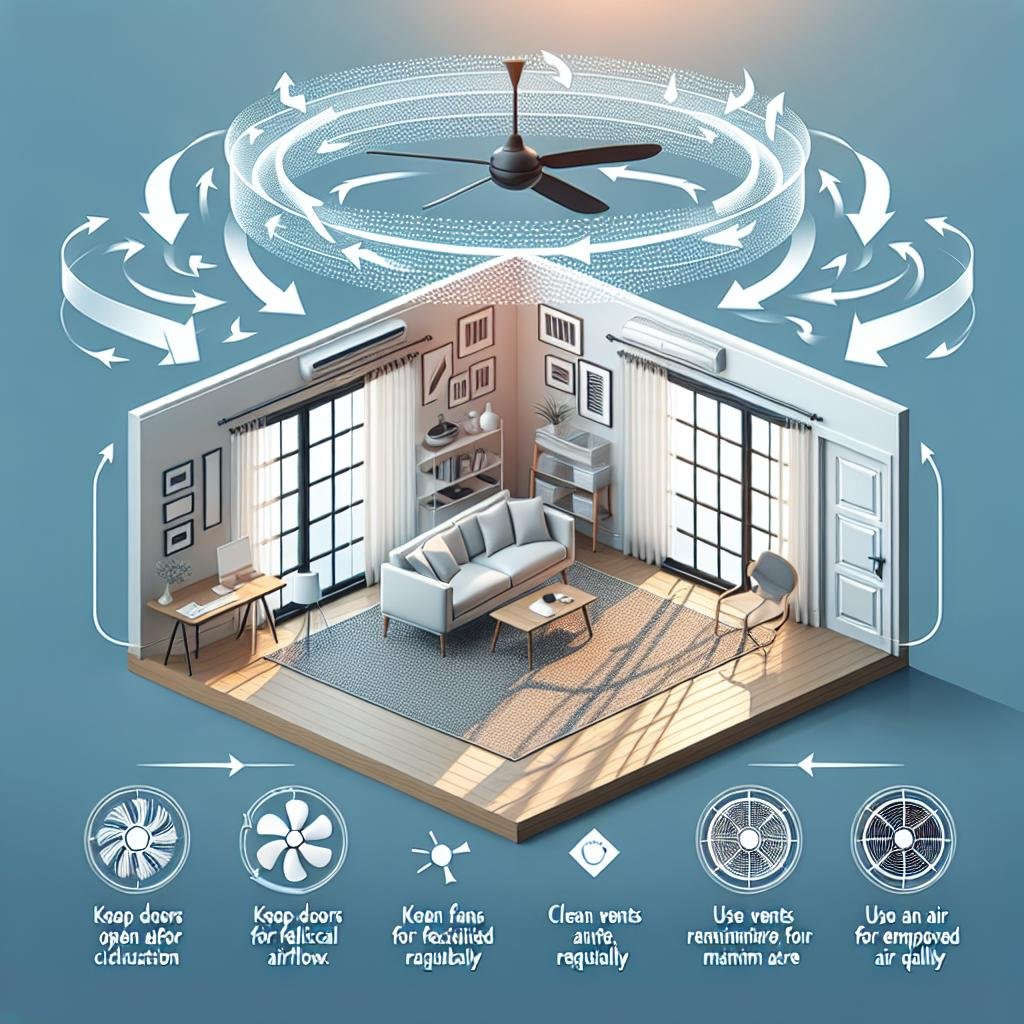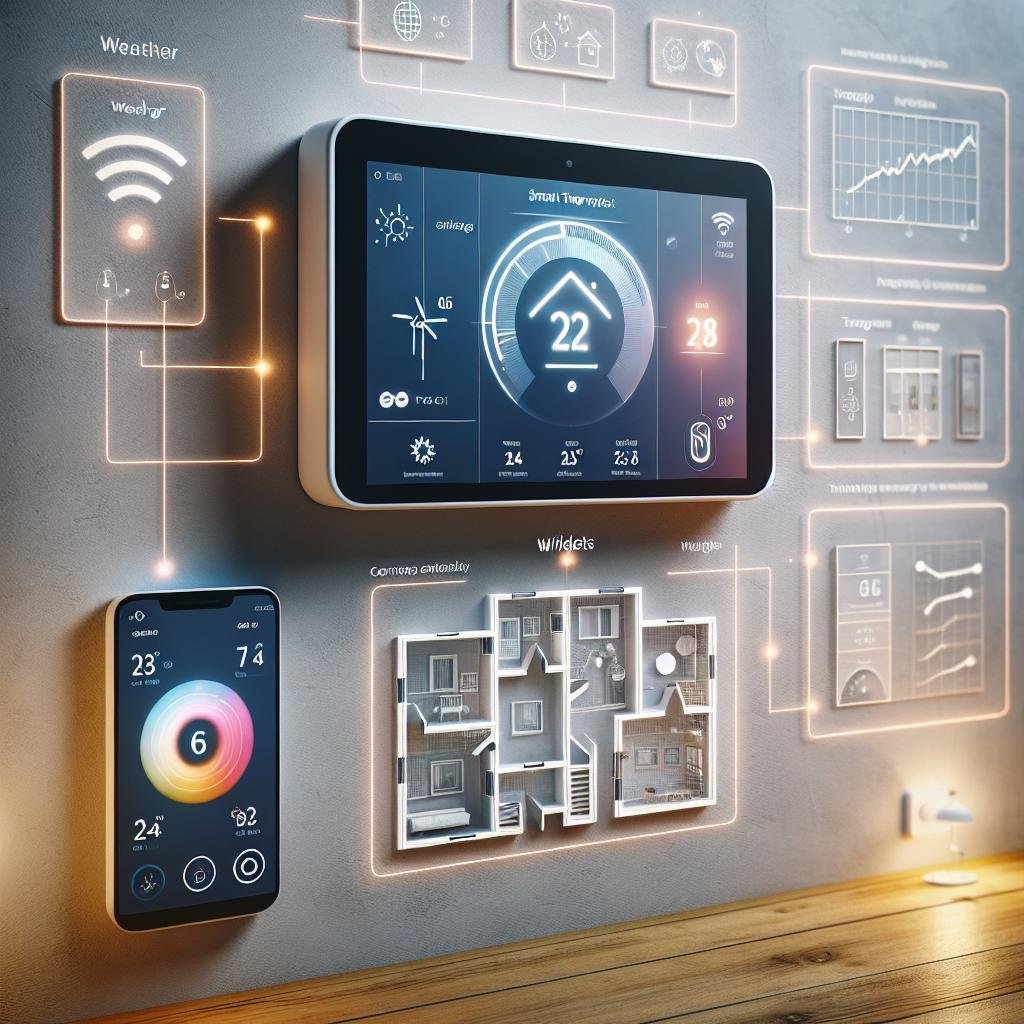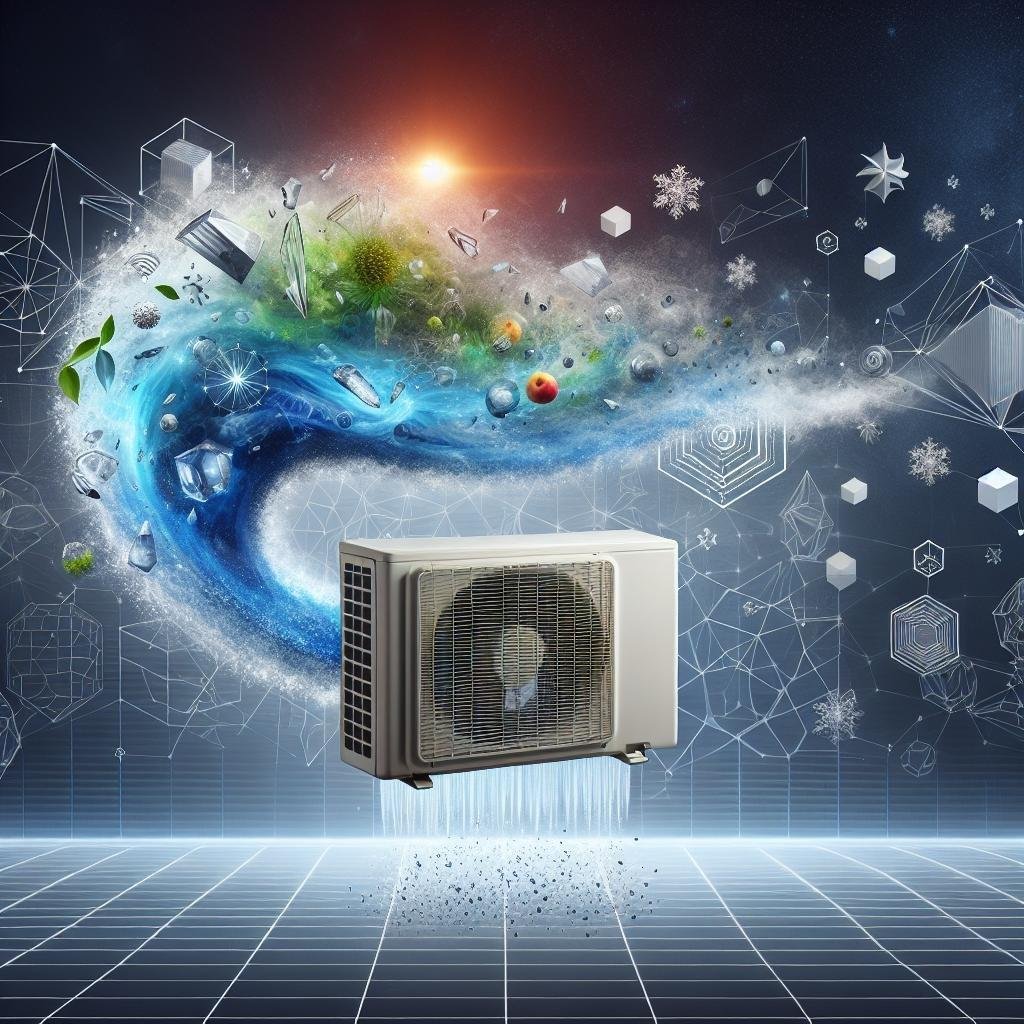As the temperatures rise and summer’s sweltering embrace takes hold, finding a cool oasis becomes a top priority—especially in larger spaces where traditional cooling systems can struggle to keep up. Enter the mini split AC system, your trusty ally in the quest for a comfortable sanctuary! With their sleek design, whisper-quiet operation, and incredible versatility, mini splits are the perfect solution for efficiently cooling expansive areas without breaking the bank. In this article, we’ll explore a treasure trove of strategies to help you harness the full potential of your mini split system, ensuring your large space remains a refreshing retreat from the heat. So, grab a cold drink, kick back, and let’s dive into the world of smart cooling solutions that can transform your home from a sauna to a haven!
Understanding Mini Split AC Systems for Large Spaces
Mini split AC systems are an innovative solution for efficiently cooling large spaces, combining flexibility and energy savings. These systems consist of two main components: an outdoor compressor unit and one or more indoor air-handling units. Unlike traditional central air conditioning, which relies on ductwork, mini splits are ductless, enabling you to target specific areas without the energy loss associated with ducted systems. This feature is particularly beneficial for expansive rooms or open floor plans, where maintaining a consistent temperature can be challenging. Benefits of mini split systems include:
- Energy efficiency: They use less energy compared to traditional systems, which can significantly lower electricity bills.
- Zone control: Each indoor unit can be adjusted independently, allowing for customizable comfort in different areas of your large space.
- Easy installation: With no ducts required, installation is simpler and less invasive, perfect for retrofitting older buildings.
When considering a mini split for larger areas, it’s important to determine the right capacity for your needs. This is often measured in British Thermal Units (BTUs), which indicates how much cooling power the unit provides. An undersized unit may struggle to cool the space effectively, while an oversized unit can lead to inefficiencies and increased wear. To assist in evaluating capacity requirements, consult the following table that outlines general BTU recommendations based on room size:
| Room Size (Sq. Ft.) | Recommended BTUs |
|---|---|
| 300-400 | 9,000-12,000 |
| 400-600 | 12,000-18,000 |
| 600-800 | 18,000-24,000 |
| 800-1,000 | 24,000-30,000 |
Choosing the right placement for the indoor units is another key strategy in optimizing performance. Install units in locations with unobstructed airflow and consider factors such as ceiling height and window exposure. Also, never underestimate the value of regular maintenance to keep your mini split system running smoothly; clean filters and check refrigerant levels to ensure peak performance. By doing so, you not only enhance cooling efficiency but also extend the lifespan of your system, making it a smart investment for comfortably cooling your large space.

Maximizing Airflow: Tips for Optimal Distribution
Ensuring that cool air travels efficiently throughout your large space can significantly enhance the performance of your mini split AC system. To achieve optimal airflow, consider adjusting the direction of the air vents to direct cool air toward hot spots. This is particularly important in rooms with high ceilings or corners that don’t receive adequate cooling. Additionally, keeping doors and windows closed during the hottest parts of the day can prevent warm air from seeping in and interrupting the system’s efficiency.
Strategic use of fans can further aid in distributing cool air evenly. Ceiling fans, for example, can help circulate the cooled air from your mini split system, while portable fans can assist in pushing airflow toward areas that need extra cooling. To maximize airflow, you could also look into setting up furniture arrangements that don’t obstruct air circulation. Check out the simple guide below to see some effective techniques:
| Technique | Description |
|---|---|
| Vent Direction Adjustment | Point vents toward high-traffic areas for better coverage. |
| Fan Placement | Utilize ceiling and portable fans to enhance airflow. |
| Furniture Arrangement | Ensure no furniture blocks the AC or airflow paths. |

Smart Thermostat Integration for Enhanced Efficiency
Integrating a smart thermostat with your mini split AC system can revolutionize the way you manage temperature in a large space. This technology allows you to customize your cooling needs effortlessly, ensuring that every corner of your area remains comfortable. With features like remote access, scheduling, and learning algorithms, smart thermostats can adapt to your daily routines. This means you can save energy by avoiding unnecessary cooling when the space is unoccupied, while still maintaining a welcoming environment when you return.
Moreover, many smart thermostats can be integrated with various smart home systems, enhancing their functionality even further. Consider the following benefits:
- Energy Reports: Get insights on your usage patterns to make informed decisions.
- Geofencing: Automatically adjust temperature settings based on your location.
- Voice Control: Manage your cooling with simple voice commands through smart assistants.
- Alerts and Reminders: Receive notifications for filter changes and maintenance checks to keep your system running smoothly.
To illustrate the efficiency gains from a smart thermostat, here’s a simple breakdown of potential savings:
| Feature | Estimated Savings |
|---|---|
| Geofencing | 15% on cooling costs |
| Energy Reports | 10% on overall energy consumption |
| Scheduling | 20% on peak usage times |
By leveraging these advanced features, a smart thermostat not only enhances the performance of your mini split AC but also promotes a sustainable, energy-efficient lifestyle tailored to your unique needs. This integration provides not just comfort but also peace of mind, allowing you to enjoy your space without worrying about running costs or energy waste.

Regular Maintenance: Keeping Your System Running Smoothly
Maintaining the efficiency of your mini split AC system is crucial for ensuring it keeps your large space comfortably cool. Regular checks and upkeep can prevent last-minute breakdowns and extend the life of your unit. Consider implementing the following practices:
- Clean the Filters: Regularly clean or replace the air filters to ensure optimal airflow. Clogged filters can decrease efficiency and lead to higher energy bills.
- Inspect the Condenser: Keep the outdoor unit free from debris like leaves and dirt to allow effective heat exchange.
- Check for Leaks: Inspect ducts and connections for any refrigerant leaks. Early detection can save you on costly repairs.
- Schedule Professional Inspections: Annual check-ups by a qualified technician can help identify issues before they escalate.
Creating a regular maintenance schedule can make these tasks manageable. Here’s a simple table to help you keep track:
| Task | Frequency | Notes |
|---|---|---|
| Clean or Replace Filters | Monthly | Use washable filters for convenience. |
| Inspect Condenser | Quarterly | Clear away dirt and debris. |
| Professional Maintenance | Annually | Schedule before peak seasons. |
By staying on top of these simple maintenance tasks, you’ll not only improve the performance of your mini split system but also enhance the comfort of your living space.
Q&A
Q&A: Efficiently Cooling a Large Space with a Mini Split AC System
Q1: What is a mini split AC system and why is it suitable for cooling large spaces?
A1: Great question! A mini split AC system is a type of air conditioner that consists of an outdoor unit and one or more indoor units. This system is perfect for large spaces because it allows for zoned cooling—meaning you can control temperatures in different areas independently. Plus, it’s energy-efficient, often resulting in lower electricity bills compared to traditional systems!
Q2: What are the key benefits of using a mini split system in a large space?
A2: The benefits are numerous! Firstly, mini splits are incredibly flexible; they can cool spaces that traditional units can’t reach. Secondly, they operate quietly, ensuring your oasis of comfort isn’t marred by noisy compressor sounds. Additionally, many models come with advanced features such as programmable settings and smart technology connectivity. Who doesn’t love adjusting the temperature from their couch, right?
Q3: How do I choose the right size mini split for my large room?
A3: Choosing the right size is crucial! It’s all about BTUs (British Thermal Units). The rule of thumb is to calculate the cooling load based on the square footage of your space. You’ll want around 20 BTUs for each square foot. However, don’t forget to take into account factors like ceiling height and sunlight exposure. If math isn’t your forte, don’t hesitate to consult a professional for assistance!
Q4: Can I install a mini split system myself, or should I hire a professional?
A4: While it’s tempting to tackle it as a DIY project (and it certainly can be done with the right skills!), we recommend hiring a professional. The installation involves refrigerant lines and electrical work, which can be tricky. A pro will ensure everything is set up safely and efficiently, leaving you to enjoy that cool breeze in no time!
Q5: What maintenance do mini split systems require?
A5: Keeping your mini split in tip-top shape is easy! Regularly check and clean the filters—every couple of months should do the trick. Also, ensure that the outdoor unit is free from debris like leaves and dirt. Scheduling an annual professional maintenance visit can help catch any issues early and keep everything running smoothly. Consistent care ensures a long lifespan for your system!
Q6: Are there any additional cooling strategies I should consider when using a mini split system?
A6: Absolutely! Think of your mini split as part of a cooling team. Use ceiling fans to improve air circulation and block out direct sunlight with blinds or curtains during the hottest parts of the day. Keeping doors and windows closed will help maintain your desired temperature. If you’re feeling adventurous, try creating cross-ventilation by opening windows on cooler evenings!
Q7: Is investing in a mini split system worth it? What are the long-term benefits?
A7: Without a doubt! While the upfront cost can be a consideration, the long-term benefits often outweigh the initial expense. Due to their energy efficiency, you’ll likely see a decrease in energy bills. Plus, the increased comfort can lead to better overall well-being at home. It’s not just an investment in cooling; it’s an investment in comfort and quality of life!
Q8: Any final tips or words of encouragement for those considering a mini split AC system for their large space?
A8: Go for it! Embrace this opportunity to create a cool, inviting haven. Remember, taking the time to choose the right system and install it properly will pay off in comfort and energy savings. You’re one step towards transforming your space into a refreshing retreat, and we couldn’t be more excited for you! Happy cooling!
Key Takeaways
As we wrap up our exploration of efficiently cooling large spaces with mini split AC systems, we hope you’re feeling inspired and equipped with the tools to transform your environment into a refreshing oasis. Remember, every room has its unique quirks and features, so don’t hesitate to experiment with the strategies we’ve discussed. Whether you’re optimizing your system’s placement, enhancing insulation, or maximizing airflow, each step brings you closer to that perfect chill.
Mini split systems are not just practical; they’re a pathway to comfort and peace, allowing you to enjoy your space without the sweltering heat. Embrace the cool, enjoy the savings, and take pride in creating your ideal climate! So go ahead, make the most of your mini split AC, and turn up the comfort in your large space. After all, a little cool air can go a long way in making your home a haven. Stay cool, friends!

